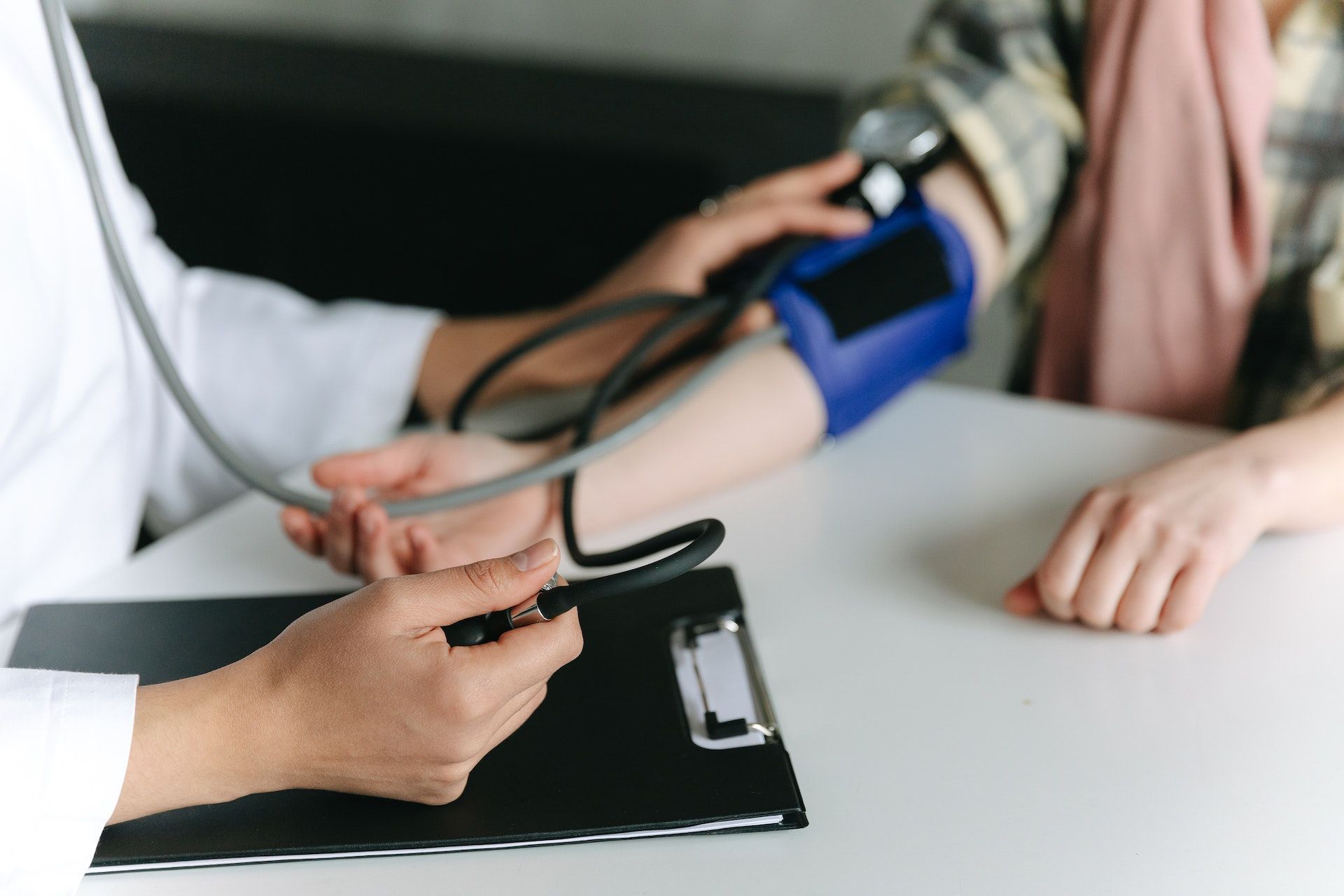Hypertension
also known as high blood pressure, is a condition in which the force of blood against the artery walls is too high. Arteries are blood vessels that carry blood from the heart to the rest of the body. The force of the blood against the artery walls is known as blood pressure.
Normal blood pressure is less than 120/80 mmHg (millimeters of mercury). This is usually written as "120 over 80." The first number, known as the systolic blood pressure, measures the pressure in the arteries when the heart beats (contracts). The second number, known as the diastolic blood pressure, measures the pressure in the arteries when the heart is at rest between beats.
Blood pressure readings of 140/90 mmHg or higher are considered to be high. This is known as hypertension. If your blood pressure is consistently high, it can damage your arteries and increase your risk of serious health problems, such as heart attack, stroke, kidney disease, and vision loss.
Causes
There are several factors that can contribute to the development of hypertension, including:
- Consuming too much salt can cause your body to retain fluid, which can increase blood pressure. A diet high in fat and cholesterol can increase your risk of heart disease, which can lead to hypertension.
- Not getting enough exercise can lead to weight gain and increase your risk of hypertension.
- Being overweight or obese can increase the strain on your heart and blood vessels, leading to higher blood pressure.
- Smoking damages the lining of your blood vessels, which can lead to inflammation and narrowing of the arteries. This can increase your blood pressure.
- Drinking too much alcohol can increase your blood pressure.
- Chronic stress can cause the release of hormones that can increase blood pressure.
- Blood pressure tends to increase with age.
- If you have a family history of hypertension, you may be more likely to develop it.
- Some medications, such as birth control pills and over-the-counter cold and allergy medicines, can increase blood pressure.
Prevention
To prevent or treat hypertension, it is important to adopt a healthy lifestyle. This may include:
- Eating a healthy diet: A diet that is low in salt and fat and rich in fruits, vegetables, and whole grains can help lower blood pressure.
- Getting regular physical activity: Aim for at least 150 minutes of moderate-intensity exercise or 75 minutes of vigorous-intensity exercise per week.
- Maintaining a healthy weight: Losing weight, if you are overweight or obese, can help lower your blood pressure.
- Not smoking: Quitting smoking can help reduce your risk of hypertension and other serious health problems.
- Limiting alcohol intake: Drinking alcohol in moderation, defined as up to one drink per day for women and up to two drinks per day for men, can help lower blood pressure.
In some cases, medication may also be necessary to control blood pressure. It is important to work with a healthcare provider to determine the best treatment plan for you. This may include taking prescription medication to lower blood pressure, such as diuretics, beta blockers, ACE inhibitors, or angiotensin receptor blockers.

It is important to have your blood pressure checked regularly to monitor your risk for hypertension and to ensure that it is well-controlled. If you have been diagnosed with hypertension, it is important to follow your treatment plan and make lifestyle changes to keep your blood pressure under control. This can help reduce your risk of serious health problems and improve your overall quality of life.
Final Thoughts
In conclusion, hypertension is a condition in which the force of blood against the artery walls is too high. It can be caused by a variety of factors, including diet, lack of physical activity, being overweight or obese, smoking, excessive alcohol consumption, chronic stress, age, family history, and certain medications. Hypertension can lead to serious health problems if left untreated, including heart attack, stroke, kidney disease, and vision loss. To prevent or treat hypertension, it is important to adopt a healthy lifestyle, including eating a healthy diet, getting regular physical activity, maintaining a healthy weight, not smoking, and limiting alcohol intake. In some cases, medication may also be necessary to control blood pressure. It is important to work with a healthcare provider to determine the best treatment plan for you and to have your blood pressure checked regularly to monitor your risk for hypertension and ensure that it is well-controlled.



















